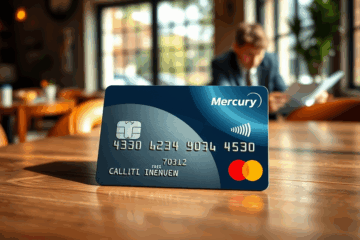Smart Tips To Avoid Interest On Credit Cards
Credit Card debt can quickly become overwhelming if not managed properly.
Understanding how to avoid accruing interest on your credit cards is essential for financial health.
In this article, we will explore effective strategies to keep your balances in check.
From paying your balance in full every billing cycle to leveraging automatic payments, and utilizing balance transfers with 0% APR offers, we will provide you with actionable tips to help you take control of your credit card usage and accelerate your debt repayment.
Let’s dive into the best practices to maintain a healthy financial life and avoid unnecessary interest charges.
Why Interest-Free Credit Card Use Matters
Dodging credit card interest is more than just a financial tactic; it’s a vital component of maintaining credit health.
When you avoid interest charges, you free your finances from unnecessary burdens that can impair your financial well-being.
Consistently carrying a balance means your hard-earned money goes to hefty interest fees rather than things that matter more, like savings or investments.
As highlighted by NerdWallet’s guide on avoiding credit card interest, paying your balance in full every month is a strategic move ensuring the money flows toward your financial goals instead of interest charges.
The financial impact of paying credit card interest reveals itself in daily life through immediate and delayed consequences, such as:
- – Less money for savings
- – Reduced cash flow for expenses
- – A compromised ability to invest in opportunities
By understanding and implementing strategies to manage credit card use effectively, you can protect your finances and achieve financial stability.
Stay tuned for expert tips and strategies that will enable you to make the most of your credit card while steering clear of the pitfalls of accruing interest.
Core Habits for Zero Interest
Managing credit without incurring interest charges relies on consistent habits that form the foundation of effective financial behavior.
By developing a discipline around timely payments and responsible spending, one can enjoy the benefits of credit while keeping costs at bay.
These core habits not only protect against interest accumulation but also pave the way for a healthier financial future.
Pay the Balance in Full by the Due Date
Pay your balance in full every billing cycle to avoid accruing interest.
Credit cards typically offer a grace period, giving cardholders around 21 days from the statement date to clear their full statement balance.
Failing to pay in full results in interest charges on remaining balances, which quickly accumulate if only the minimum payment is made.
Always meet the payment deadline to maximize your interest-free period and maintain credit health.
Use automatic payments to stay on schedule.
Regular light reviews of transactions help you track spending and prevent surprises.
Consider these aspects:
- Benefit: Keeps every purchase interest-free and enhances creditworthiness.
- Common Pitfall: Overlooking the payment deadline and incurring unnecessary interest costs.
By maintaining discipline and planning ahead, you avoid debt traps and keep finances in check.
Keeping track of your billing cycle and avoiding delayed payments not only saves money but ensures long-term financial peace.
Remember, managing your balance wisely offers financial freedom and stability.
Set Up Automatic Payments
Setting up automated payments through your credit card issuer’s portal can effortlessly prevent missed due dates.
First, access the portal and navigate to the payment options.
Next, select ‘AutoPay’, then choose ‘Statement Balance’, and confirm your selection.
By automating these payments, you ensure timely bill settlement, thus avoiding late fees and potential interest charges.
Many issuers also provide notification reminders to alert you before the transaction is processed, offering an added layer of security for your finances.
The convenience of automated payments frees you from having to remember manual due dates amidst a busy schedule.
Not only does this facilitate a worry-free billing cycle, but it also reduces the risk of errors associated with manual payments, such as inputting incorrect amounts or missing a payment entirely.
This convenience allows for better financial management, keeping your credit score intact.
Moreover, automated payments contribute to a healthier financial routine by ensuring consistent payment behavior, leading to improved credit health over time.
For detailed guidance, consider visiting a reliable source like Experian Automated Payments Guide.
These steps make the process seamless, securing your financial commitments and strategically managing your expenses.
Make More Frequent Payments
Making frequent payments directly impacts the interest you may incur on your credit card balance by reducing your average daily balance.
This proactive approach means interest has less balance to accrue against, lowering the potential costs.
One effective timing strategy involves making payments right after payday.
By doing so, you not only allocate funds wisely but also ensure that your cash flow efficiently aligns with your debt management goals.
Additionally, consider making payments immediately following large purchases.
This can help minimize the time high balances sit on your card, accruing potential interest.
Recognizing these opportunities to pay in a timely manner can significantly decrease the long-term costs associated with carrying a balance.
For more insights on how to manage credit card interest, visit NerdWallet’s Guide.
Balancing this method with the discipline of paying off high-interest cards first ensures a more efficient path to financial stability.
Adopting these steps not only saves money but also contributes to healthier credit management.
Strategic Tools to Control Interest
Managing interest on credit cards can be a key factor in maintaining financial stability.
By utilizing strategic tools like promotional rates and balance reshuffling, consumers can effectively reduce or eliminate interest charges.
Understanding these advanced tactics is essential for anyone looking to take control of their credit and maximize their financial potential.
Leverage Balance Transfers and 0% APR
Leveraging balance transfers can be a strategic tool to improve financial health.
Generally, balance transfers involve moving your existing credit card debt to a new card offering a 0% APR introductory period.
This allows for significant savings on interest for several months, commonly ranging between 6 to 18 months.
During this period, focusing on principal repayment is crucial; hence, having a strict repayment discipline is essential.
According to Mountain America’s Guide, selecting a card with favorable terms is equally important.
Notably, a key consideration includes the balance transfer fee, typically ranging from 3% to 5%.
Zero percent APR offers provide immediate relief from high-interest payments, allowing debtors to direct all payments towards reducing their outstanding principal.
However, this strategy requires careful examination of each card’s terms, as highlighted by Experian’s resource on balance transfers.
| Pros | Caveats |
|---|---|
| No interest for the promo term | Transfer fee usually 3%-5% |
| Faster principal reduction | Rate spikes after promo ends |
A reminder: Pay off your transferred balance before the promotional period ends to avoid sudden interest rate increases.
Tackle High-Rate Cards First
Focusing on your high-interest credit cards first is crucial to reducing the overall amount of interest paid over time.
By employing the debt avalanche method, you direct any extra funds towards your card with the highest annual percentage rate (APR) while continuing to maintain minimum payments on your other accounts.
This strategic approach ensures that your hardest-hitting interest charges are addressed first, thereby minimizing the long-term interest you accrue.
As described by Fidelity’s Guide to Debt, focusing on the most expensive APR can dramatically accelerate your journey to being debt-free.
Once you identify your priciest debt, which can often be done by reviewing your credit card statements for the card with the highest interest rate, shift your payment strategy.
Allocate as much as you can to this balance while maintaining minimums on your others.
Applying resources to your highest-rated card will ensure that more of your payment goes toward the principal rather than just covering interest.
Pay the priciest debt first to witness significant savings and make noticeable progress in lowering overall debt.
This not only streamlines your financial efforts but also maximizes cost-effectiveness in your debt payment journey.
In conclusion, managing your credit cards wisely can save you from costly interest charges.
By adopting these strategies, you can take charge of your finances and pave the way for a debt-free future.



0 Comments